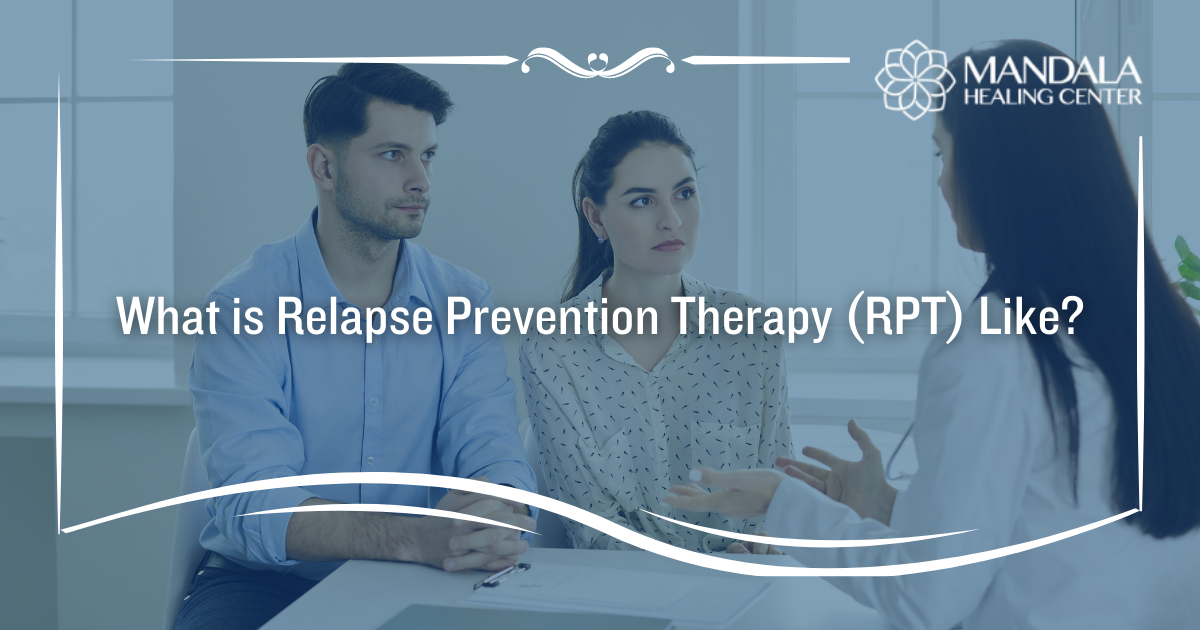Addiction is a chronic brain disease that affects individuals in a wide variety of ways. Individuals who have recovered from addiction or alcoholism must continually maintain their sobriety to remain healthy and recovered. Unfortunately, sometimes people in recovery relapse. Relapse is a common occurrence described as the event in which a recovered addict or alcoholic experiences a misstep in their recovery and returns to abusing drugs or alcohol.
Fortunately, a type of cognitive-behavioral therapy referred to as relapse prevention therapy (RPT) is proven to reduce one’s risk of relapse. Let’s take a look at what relapse prevention therapy is and how it works.
What Causes Relapse?
Relapse most commonly occurs when a recovered addict stops following their ongoing treatment plan. However, there are many different reasons an individual may return to abusing drugs or alcohol. Typically, the cause of a relapse is referred to as a “trigger”. Triggers can be environmental, mental, or emotional, and cause enough discomfort to send an individual back to their old ways of thinking.[1]
Environmental triggers may include:
- Passing by or being in a place where an individual used drugs or alcohol
- Being around a person whom the individual used to abuse substances with
- A song that reminds an individual about their drug abuse
- An object reminding someone of drug abuse
- Experiencing stressful situations that an individual used to use drugs to cope with
Mental and emotional triggers may include:
- High stress
- Depression
- Boredom
- Increase in symptoms of a co-occurring disorder
- Failure to treat mental health conditions after leaving treatment
- Experiencing a new trauma or being reminded of an old trauma
What is Relapse Prevention Therapy? (RPT)
Relapse prevention therapy is a cognitive-behavioral form of treatment that asks patients and their therapists to identify possible triggers that place the individual at risk of relapse. While all forms of addiction and alcoholism treatment are intended to prevent relapse, relapse prevention therapy primarily focuses on that goal.[2]
RPT is skills-based, as it teaches patients to develop and use strategies to work through their triggers before relapse occurs. Over time, RPT builds the patient’s confidence by equipping them with coping strategies in case a triggering situation were to occur.
Understanding Relapse Prevention Therapy
In RPT, the patient and therapist begin by working together to identify potential situations that may lead to drug or alcohol use. These situations may include environmental pressures or emotional states that lead to thoughts of substance abuse. In other words, RPT works to identify and work through triggers that could lead to a potential relapse in the future.
Additionally, relapse prevention aims to identify ways of living that may contribute to future relapse. For example, the kind of people a patient hangs out with, their sleeping patterns, and even their way of eating may be assessed for potential risks. Typically, RPT protocols include 12 weekly sessions that include notes and recordings for progress assessment.
The Main Points of Focus During RPT
Anyone who has struggled with addiction knows that it can be a difficult disease to manage at times. With a large number of addicts struggling with co-occurring disorders, many addicts have a difficult time keeping up with their daily recovery efforts. RPT was designed to help recovering addicts for these reasons.
This approach helps patients to:[3]
- Grasp the idea that the concept of relapse is a part of a progression, rather than an isolated event.
- Identify their triggers and understand why certain events or feelings make them want to use substances.
- Develop effective ways to cope with triggers, cravings, and urges to abuse drugs or alcohol.
- Identify potential high-risk situations (i.e. unpleasant emotions, relationship conflicts, social pressures to drink or use drugs)
- Find healthy ways to cope with and manage such situations
- Learn how to use coping strategies to avoid a full relapse
- Learn how to make healthy choices that lead to abstinence and recovery
Relapse Prevention Therapy in West Palm Beach
At Mandala Healing Center, we use holistic therapies and processes to help recovering addicts get sober and remain sober for a lifetime. In our program, relapse prevention therapy is a pivotal aspect of our treatment plans. We believe that our patients should be fully prepared to deal with any form of environmental, social, mental, and psychological triggers they may encounter in the real world.
If you or a loved one are struggling with addiction, we’re here to help. Call today to get started.
References:
- https://www.ncbi.nlm.nih.gov/pmc/articles/PMC7186308/
- https://citeseerx.ist.psu.edu/viewdoc/download?doi=10.1.1.471.6646&rep=rep1&type=pdf#page=101
- https://www.ncbi.nlm.nih.gov/pmc/articles/PMC3163190/












